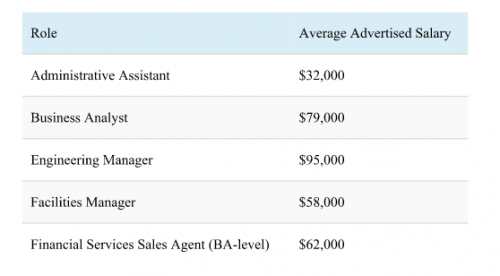Industry Certifications May Be the Answer to Skills Gaps

These days, the phrase “higher education” seems to be synonymous with “crippling life-long debt.” On top of that, the skills gap only seems to grow wider every year as each new crop of graduates fails, in some way, to meet the demands of the business world.
In response, some companies are increasingly looking beyond college degrees to find candidates and fill talent shortages. Instead, these companies are zeroing in on holders of non-degree professional certifications.
While a number of certifications exist across industries, employers have their sights set on a relatively scant few. According to “The Narrow Ladder: The Value of Industry Certifications in the Job Market,” a report from analytics software firm Burning Glass Technologies, the top 50 certifications account for two-thirds of all requests for certifications in all job posts.
College Isn’t Obsolete – Yet
Certifications can’t answer every talent shortage problem in every industry, but organizations in more technical industries are starting to realize the benefits of requiring certifications.
That doesn’t mean that certifications can or will replace college education entirely. As Burning Glass CEO Matt Sigelman points out, workers who want to bypass college with certifications currently have limited career options.
“It’s important to point out that certifications validate specific, technical skill sets,” says Sigelman. “There’s no need to go to college to pick up these technical skills, but by the same token, certifications don’t provide the broad education and analytical skills that higher education offers.”
Workers in technical fields will need to do a fair amount of research before plotting their paths in education. Depending on a worker’s specific career trajectory, they may need a college degree, one or more certifications, or some combination of the two.
“Only 10 percent of job postings require a certification, meaning that they aren’t yet a major force in the market,” Sigelman says. “Having one may give you an edge, but outside of certain specific fields, it isn’t something employers demand.”
‘Door Openers’ and ‘Career Escalators’
The Burning Glass report classifies two types of certifications: “Door Openers” and “Career Escalators.”
Door Openers are entry-level qualifications that help workers get started in their careers.
“A good example is the Automotive Service Excellence (ASE) certification for mechanics,” Sigelman explains. “You can get a job as a mechanic without one … but [having one] makes a big difference in salary. Jobs that ask for an ASE carry a 21 percent salary premium over those that don’t.”
Meanwhile, Career Escalators provide advancement opportunities for workers already established in their careers.
“Career Escalators allow mid-career workers to move upwards by validating more advanced skills,” Sigelman says. “Two examples are Project Management Professional (PMP), which is valued in a range of industries, and Certified Information Systems Security Professional (CISSP), which is a key credential for cybersecurity careers. Both require a certain level of experience to acquire – for example, five years’ cybersecurity experience for CISSP. Both carry significant salary premiums – 11 percent for PMP and 7 percent for CISSP.”
Who Is Looking for Certifications?
Some jobs require four-year degrees. Some want certifications. Some want both. It can be difficult for job seekers to figure out which certifications are worth looking into.
According to Sigelman, health care and IT are the two industries in which certifications are most established and most necessary. Professionals entering or established in these fields should pay particular attention to the certifications available to them.
“The career ladder in IT is largely defined by certifications; health care is a different case, because certifications are built into state licensing requirements,” Sigelman says.
While the Burning Glass report excludes health care and IT from its analysis on the grounds that certifications are essentially – if not in fact – mandatory in these industries, it does identify “a number of areas where there is an opportunity to expand the use of certifications,” Sigelman says. These areas include sales, manufacturing and production, marketing, and planning and analysis.
The top five in-demand certifications identified by Burning Glass were:

The Softer Side of Certification
Soft skills are also in very high demand, but they can be hard to quantify. As such, certifications that claim to certify soft skills aren’t widely accepted. Such certifications should be scrutinized carefully by employers before being accepted – if at all.
“One challenge is that soft skills are contextual,” Sigelman says. “That is, rather than being a basket of what some people refer to as ‘common employability skills,’ [the particular] soft skills employers demand vary considerably from occupation to occupation.”
For example, Sigelman says that customer service is the second most requested baseline skill in sales and marketing, but only the 12th most requested in engineering.
“In addition, [soft skills] represent broad-brush labels,” Sigelman says. “The communications skills required of someone in a front-line service role are not the same as those an employer might require of a data analyst, so measuring them generically may not be useful.”
That said, there is one soft skill certification many employers have more or less reliably accepted for decades: a bachelor’s degree.
–
Regardless of one’s career path, certifications can help many workers begin or advance in their fields. Given the wide array of talent gaps faced by US organizations, expanding the use of certifications to meet specific skill requirements is a potential solution worth exploring for any company suffering from a shortage of skilled workers.

